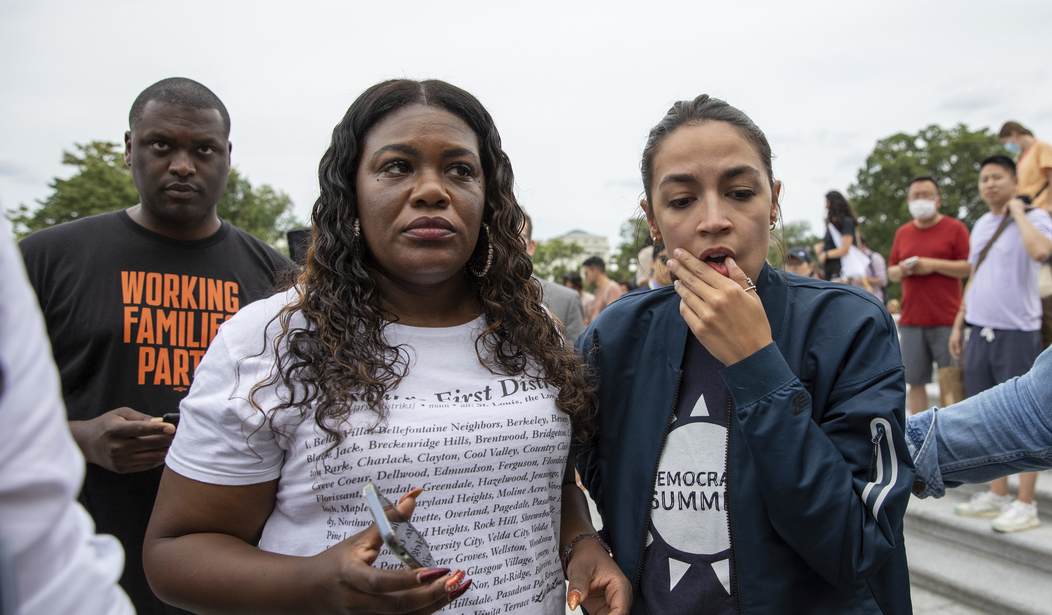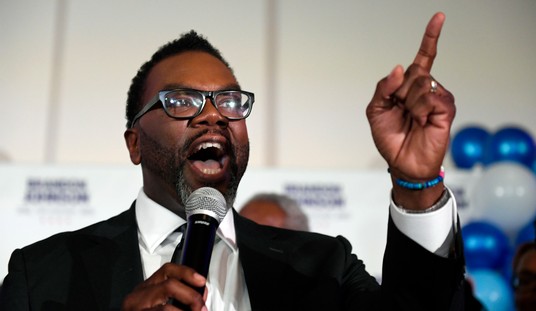It's been said that America is a nation with a conservative brain and a liberal heart. What that really means is that the United States is not a nation of extremes. Since our founding, there's been a rough balance between right and left with the country's politics rarely veering far from the center.
The election of Barack Obama was heralded as the dawning of the age of a "permanent Democratic majority." Instead, the backlash against Obama's radical politics almost destroyed the Democratic Party.
When Obama took office, there were 60 Democratic senators; by 2016 there were 46. The number of House seats held by Democrats shrank from 257 to 188. Today there are 49 Democratic senators and two independents who vote with them. There are 213 Democratic congressmen, but that number may shrink considerably after November's election.
Democrats currently hold 23 governors to the GOP's 27. And while the number of Democratic officeholders at the state level has recovered somewhat from the Obama years, Republicans still control 56 legislative chambers to the Democrat's 41.
Radical left politics may yet destroy the Democratic Party. But there have been recent signs that even within the party, there appears to be some pushback from less radical Democrats.
The highest-profile radical left group is the so-called Squad. Despite the fact that the Squad members all represent fairly safe Democratic districts in Congress, one of them, New York Rep. Jamaal Bowman, has already lost his primary.
And another Squad member, Missouri Rep. Cori Bush, is trailing badly leading up to the August 6 primary. She, like Bowman, enraged pro-Israel groups with her blatantly pro-Hamas rhetoric.
St. Louis prosecuting attorney Wesley Bell (D.) is leading Bush 56 percent to 33 percent among likely voters in the Missouri First Congressional District primary, according to a survey conducted by McLaughlin and Associates for the CCA Action Fund. Another 11 percent chose other candidates or remained undecided, the New York Post reported Sunday.
The poll surveyed 300 likely Democratic voters and has a margin of error of plus or minus 5.7 points, according to the New York Post, which described CCA Action Fund as an anti-Bush super PAC. In June, however, a survey conducted by the Mellman Group found Bell narrowly leading Bush 43 percent to 42 percent.
Bush certainly played the role of radical extremist to the hilt. She voted against a bill that would have barred terrorists who participated in the October 7 attacks against Israel from entering the United States. Bush said the bill would "target immigrants and incite anti-Palestinian hate." She was one of two members who voted against the bill. The other member was Michigan Rep. Rashida Tlaib who explained, “It’s just another GOP messaging bill being used to incite anti-Arab, anti-Palestinian and anti-Muslim hatred that makes communities like ours unsafe."
But looking at the entire political picture, one can see that the radicals are in full retreat. On immigration, Biden has been forced to scrap his open border policy and, with much screaming from the left, adopt policies used during the Trump era. He is slowly retreating on his pledges to virtually end the oil and gas industries. Environmentalists are livid with some of his recent statements.
The radical left has been incensed with Biden for failing to get behind key elements of its agenda. Instead, as with immigration, he has done exactly the opposite of what radicals recommend.
It's not that Biden is a born-again moderate. The media called him that in 2020. Biden is a scared politician running away from the radical left for his political life, not out of any ideological change of heart.
But the president has been on dicey ground with his party’s most liberal members for months, and his standing with progressives has weakened dangerously over his support for Israel’s assault on Gaza after Hamas’ October 7 terror attacks. The party schism will be on graphic display when Israeli Prime Minister Benjamin Netanyahu addresses Congress in the coming weeks — honoring an invitation that originated with Republicans keen to maximize Biden’s political distress.
The president’s dilemma is so significant because of signs that the coalition that carried him to power over Trump four years ago has eroded. His support in polling compared to his performance four years ago has been especially shaky among liberal voters and people of color. In a knife-edge election that could come down to thousands of votes in a few states, every Democrat who doesn’t show up for Biden is effectively a vote for his rival.
Individual leftists like AOC, Ayanna Pressley, and Rashida Tlaib may be with us for a long while. But the power they held to pressure mainstream Democrats has waned considerably. The pendulum is swinging back toward the center for Democrats. This will make them more competitive with the GOP across the nation.










